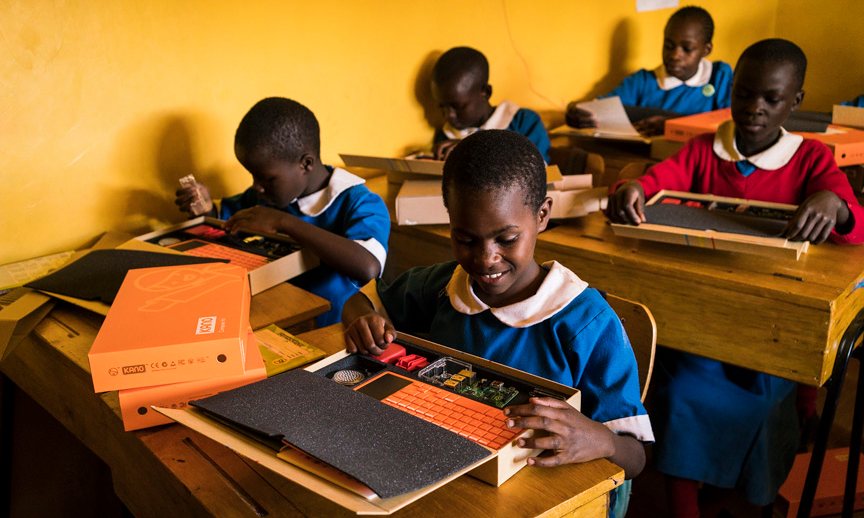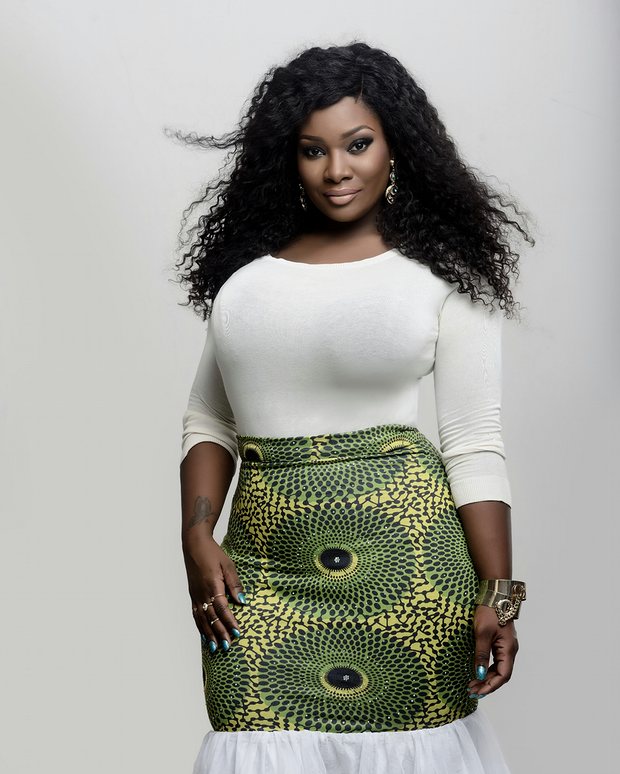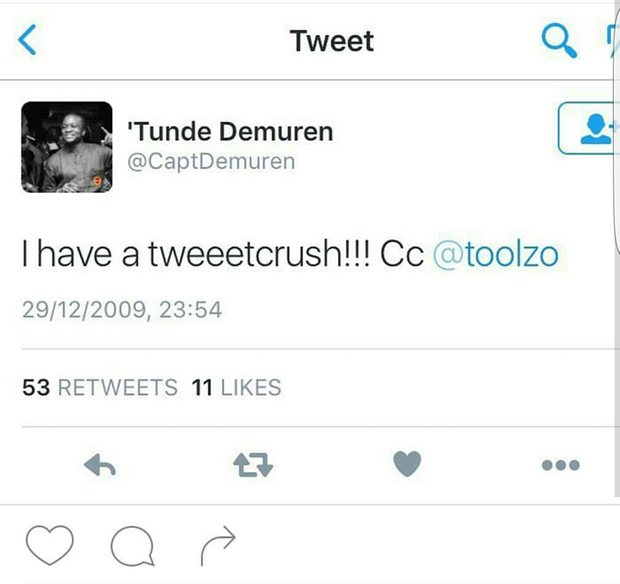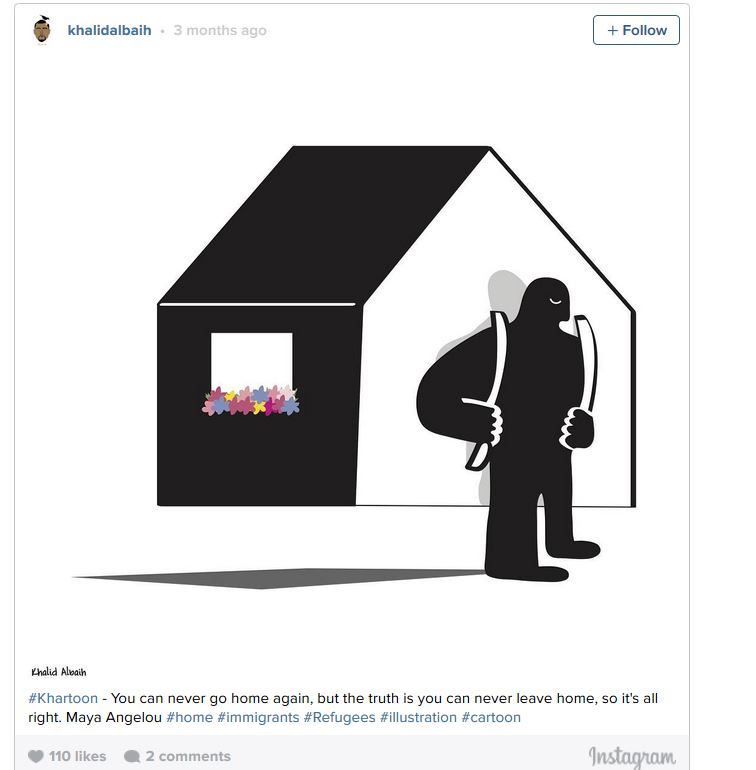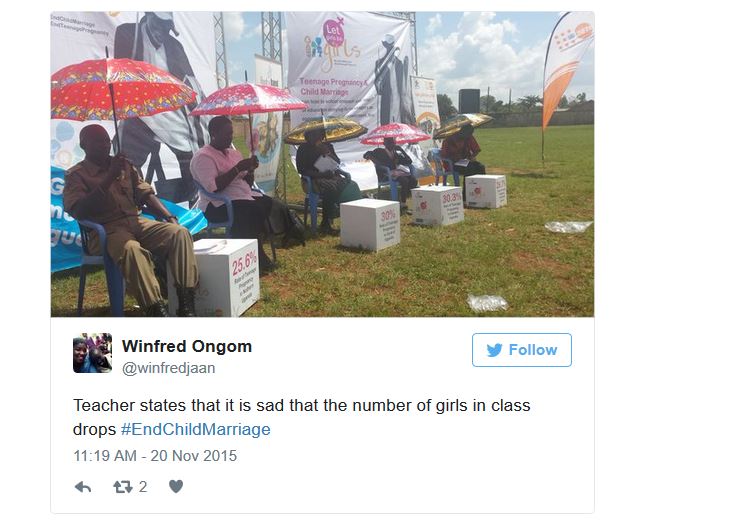I have made friends from all over the world on social media and in 2009 a young man called Tunde Demuren declared on Twitter that I was “his crush”. I didn’t know him then, but we were introduced by a mutual friend and we just got married.
Toolz Oniru-Demuren, Lagos, Nigeria

The tech entrepreneur: ‘There’s astounding innovation but we need to own it’
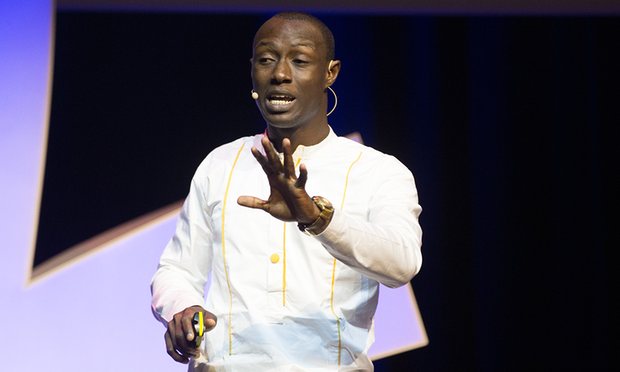
I am online all day, Monday to Friday. First I check my emails then I read an online devotional, check my calendar, host standups with my team at Asoriba, respond to emails, work on the product and respond to more emails.
We founded the Asoriba app in 2015 to connect Christians with the word of God via the one thing most Africans own: a mobile phone, whether smart or dumb.
Every morning before getting out of bed, church members can read tailor-made devotions from their pastor, catch up on sermons they may have missed and scroll through the events being hosted at their church or others nearby.
The congregation, in turn, can support the church financially using mobile money, or credit cards. Churches can also use the app to store the details of their congregations.
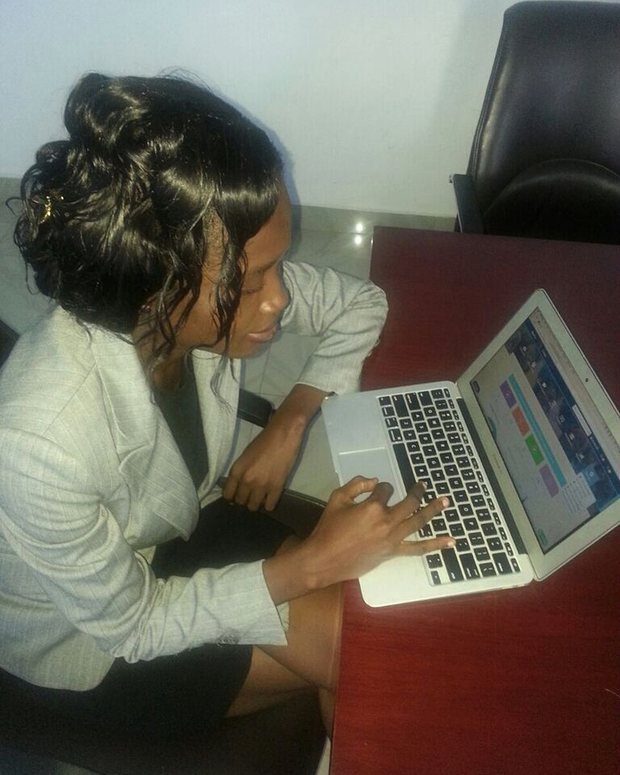
We started in Ghana and are just about launch in Nigeria. The dream is to roll out to churches across Africa and Latin America.
The three Christian co-founders and I all live in Ghana where we were awarded the Seedstars award for the best African startup of 2016.
The amount of innovation in our country is astounding, but most of the investment has come from foreigners, not from Ghanaian investors or our government. Tech can be a major source for revenue for our country but we need to own it.
Nana Opoku Ware Ofori Agyeman-Prempeh, 28, Accra, Ghana
The Chibok resident: ‘Mobile phones were invaluable the night Boko Haram kidnapped our girls’
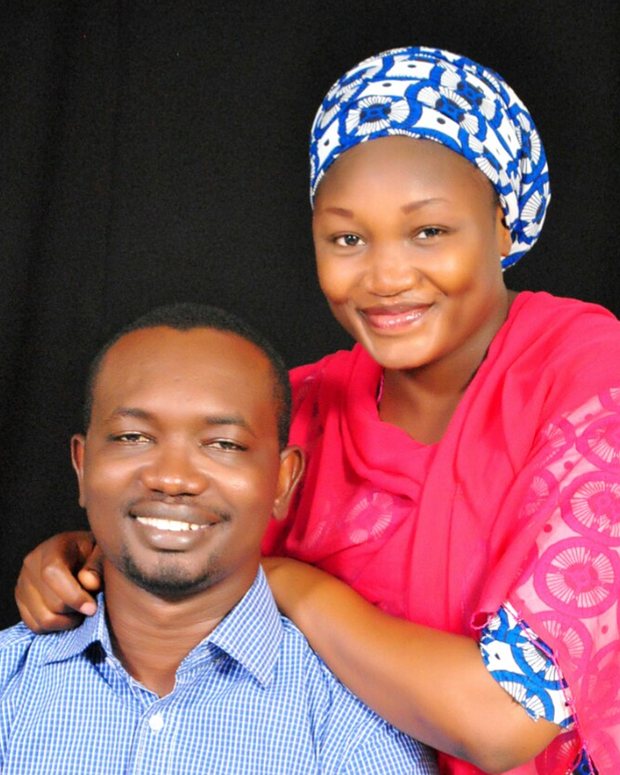
Mobile phones were invaluable the night 276 girls were kidnapped from our town by Boko Haram. As terrorists descended on Chibok’s secondary school our neighbours were frantically ringing us to warn that we were under attack.
We didn’t hear them at first because our generator was making too much noise, but my husband got up to switch it off and saw the missed calls: our neighbours had fled to a nearby mountain.
We sent texts and Facebook messages to our family and friends asking them to pray with us as we planned our escape and my husband made calls to help navigate our path to safety.
The importance of technology in times of such emergency, especially mobile phones, can never be overemphasised. Our neighbours now make sure their phones are always charged and that they have adequate backup power supplies.
Technology, boosted by mobile connectivity, is spreading like wildfire through north-east Nigeria, a region still under siege from Boko Haram.
It’s popular with everyone, young and old, and now at least one home in every remote village has a mobile phone. Even if they can’t text [due to high illiteracy rates] they can make calls, very important for emergencies.
But we still have many challenges getting online, sometimes the network is so poor that WhatsApp messages linger for hours without sending and a shortage of power means that we can’t always charge our laptops.
Grace Danladi Saleh, 28, Chibok, Nigeria
The schoolgirl: ‘Most get their first mobile phone aged seven’
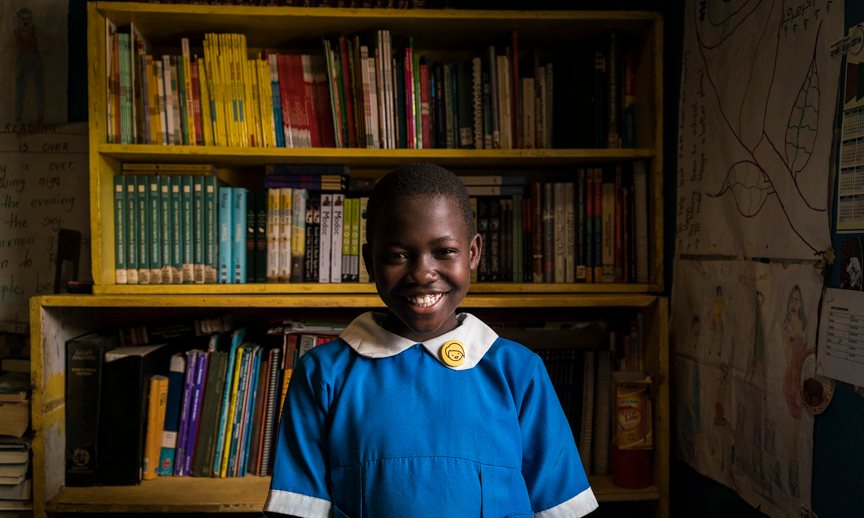
Most girls in my village get to use their first mobile phone at seven years old. We share two in my house but we don’t have access to the internet, I have to wait for code club at school for that.
I have enjoyed learning about computers and all the ways in which they can help us. When we don’t understand our homework we can use Google to get the answer. I also like playing games online.
I think that computers may also be able to help me tell stories and sing songs, particularly gospel music. I want people to hear about life at the Kibera girls’ school and how I am unique in my own way.
It’s very important that we are given this level of education, in some communities they don’t even allow the girls to speak, only the boys and men.
Lensa Akello, 10, Kibera, Kenya
The farmer: ‘We used to rely on the breeze to predict the weather, now we use mobiles’
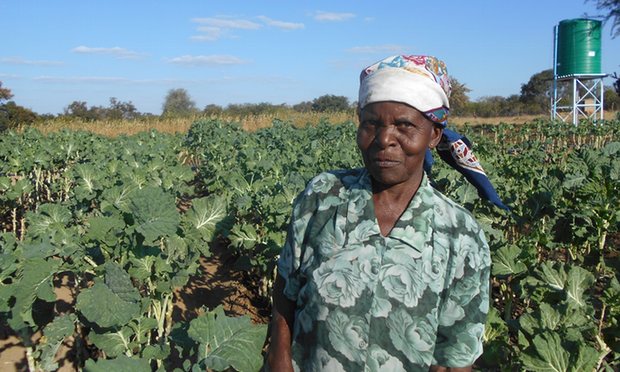
We used to rely on traditional knowledge to predict the weather. We’d feel the zephyr, the breeze, and know what the weather forecast would be the following day. We’d check the stars, and the size and colour of the moon and know whether the coming season would bring enough rains.
Some farmers still rely on this, but we also have our mobiles to read the weather forecasts from the national meteorology service. Almost every farmerhere in the Matabeleland region, south-west Zimbabwe, has a mobile phone but the network coverage can be patchy and expensive.
The local mobile network, NetOne, is not very reliable and we often need to walk long distances of about 3.5km (2 miles) to get it to work.
When we find signal we use a pin code, *130*1#, and download the most up-to-date forecast. It costs $0.20 a session.
Knowledge about the weather has never been more important. Last year we experienced terrible heatwaves that completely dried out the underground water table. We also need to be prepared for the cold, which can ruin crops too.
Moddie Msebele, 70, Matabeleland, Zimbabwe
The jailed blogger: ‘Facebook got Ethiopians excited about the internet, but the government is always watching’
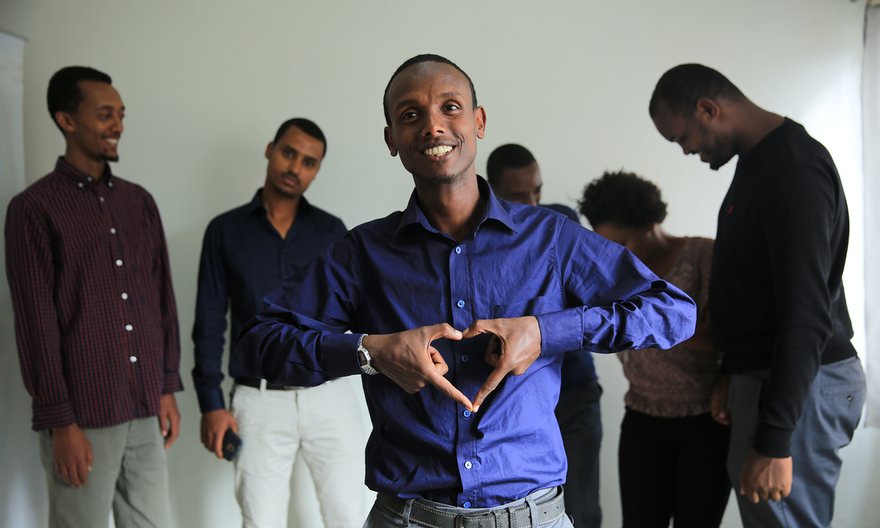
In Ethiopia rates of internet connectivity are very low and crackdowns on freedom of speech are very common.
In April 2014 I was jailed for 18 months with eight of my friends for blogging about the government.
We had launched Zone 9 two years earlier to start a discussion about social and civic issues in our country, but we were arrested and charged with terrorism.
After a lengthy battle the charges were dropped and we were released, but I am now fighting accusations that I was “inciting violence” through my writing.
As well as a “Zoneniner”, I am an author and an editor of a bimonthly magazine called Weyeyet, meaning dialogue in Amharic, which focuses on political issues. I have no plans to stop being critical of the government.
I use Gmail, Facebook and Twitter daily, and other sites including Viber and Instagram occasionally. Facebook and Twitter help me promote my cause, democracy, and to campaign on the issues that are most important to me.
The arrival of Facebook has got people in Ethiopia interested in the internet. Maybe that’s a good thing, but the government is always watching.
Befeqadu Hailu, 36, Addis Ababa, Ethiopia
The political cartoonist: ‘We are embroiled in a rumour war, fuelled by the absence of free speech’
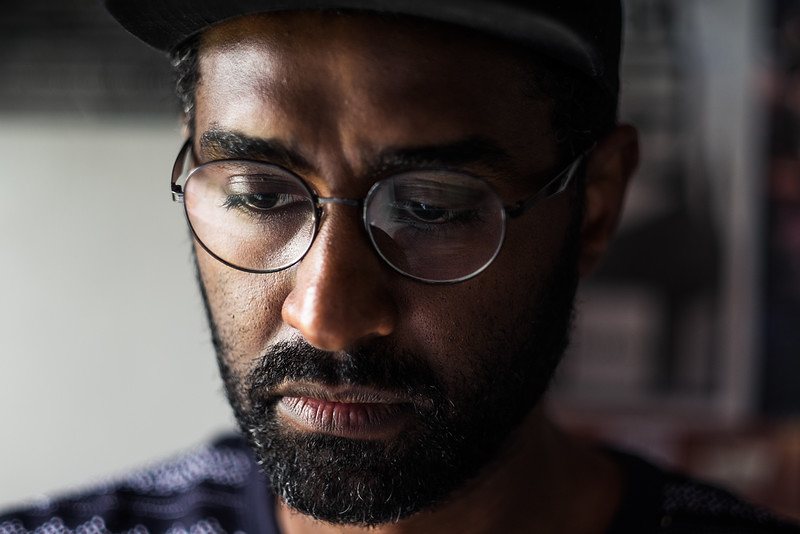
Photograph: John Mireles-Culturunners
I live on social media because government censorship prevents me from being anywhere else.
My cartoons, or Khartoons as they are known, are political and often critical of the Sudanese government. I started sharing them on the social network Hi5 before the Arab spring but then migrated to Facebook when it found an audience in Sudan.
The concept of traditional media doesn’t exist in Sudan, it is so biased and politically driven. I was once thrown out of an editor’s office for suggesting an idea, but on Facebook I can upload something and reach thousands in seconds.
But there is no sense of copyright, my art is shared and reposted across Facebook, Twitter and WhatsApp quickly. Sometimes my name is cropped out, but I don’t mind because I’m doing it for the message. I now live in Qatar where I feel relatively safe doing my work.
Sudan is one of the most oppressive countries in the world and while opposition groups, including the youth activists Girifna, are very active online the government has mobilised an online defence force whose sole purpose is to troll them and spread pro-government propaganda.
They call themselves the “electronic mujahideen”, we call them electronic chickens.
The majority of Sudanese people have bypassed computers completely, going from nothing to using the internet on their mobile phones. And there has been an explosion of information being pinged around on WhatsApp in the past year.
But with the deluge of comments, photos and articles it is become increasingly difficult to ascertain what is true and what is false.
If there are doubts raised about whether the president’s brother married a third wife, then how do we know that a report about a massacre in Darfur is true? We are embroiled in a rumour war, fuelled by the absence of free speech.
Khalid Albaih, 36, a Sudanese cartoonist living in Qatar
The refugee: ‘Facebook and SMS are very popular in the camp’
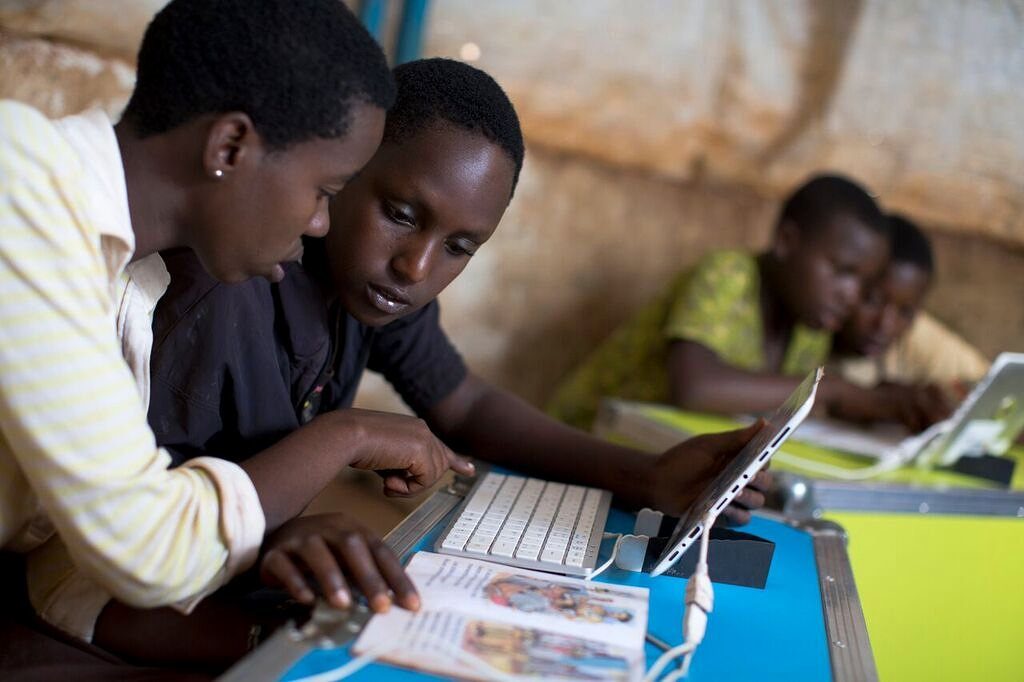
Photograph: International Rescue Committee/ Bibliothèques Sans Frontières
I fled the Democratic Republic of the Congo in 2000 and now live in the Bwagiriza refugee camp in neighbouring Burundi.
My mobile phone is very useful to my daily life in the camp. It helps keep me informed with what’s happening in the outside world and communicate with my family and friends.
The people who run businesses use them to order in supplies from the nearby city of Ruyigi.
Most people use SMS messages and Facebook to communicate – I also like WhatsApp – but we don’t always have enough credit and the network coverage is patchy.
The only stable internet comes through the IdeasBox programme run by the International Rescue Committee and Bibliothèques Sans Frontières. It’s a portable station equipped with laptops, iPads and video cameras.
It is very popular with people in the camp, but when it goes, so does our connection to the outside world.
Furaha Nyanduhura, 21, Bwagiriza, Burundi
The campaigner: ‘Social media connects me with politicians instantly’
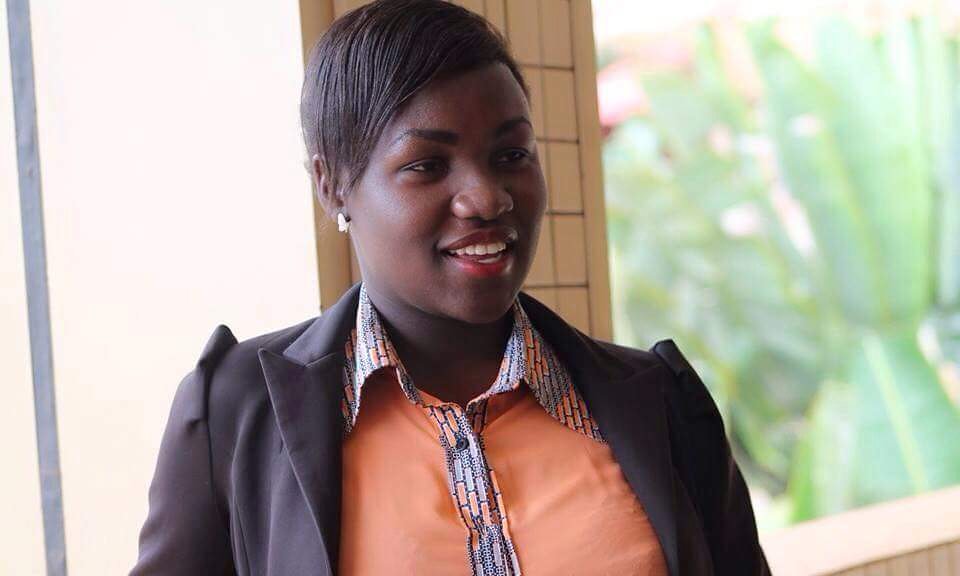
Photograph: Winfred Ongom
The first thing I do every morning is check my email, then Facebook followed by Twitter then WhatsApp. Twitter and Facebook are my favourite mainly because the audience is big – it’s very popular in Uganda and relatively cheap.
The best thing about social media is that it helps me reach a lot of people from all walks of life in one go.
Aside from keeping in touch with friends, I mainly use social media to share information about health services for women and girls: reporting on what is happening in rural Uganda and sharing their reality back with the politicians who sit in the capital, Kampala.
In Uganda 16 women die every day from complications related to pregnancy and childbirth, almost always because they can’t access the care they need. So, almost every weekend I make a trip to a village somewhere across the country, record videos at clinics – some which still have no electricity or running water – and tweet them at the politicians who are responsible for their upkeep.
We have seen improvements in some districts, but my highlight was in the regions of Lira and Apac where we managed to get the health centre restocked with mosquito nets.
This wouldn’t have been possible a couple of years ago but now most politicians have embraced social media. My approach is quite unique and at first I was worried that I would be regarded as too aggressive, putting the politicians off, but they say they appreciate it – at least in public anyway.
Winfred Ongom, 24, Kampala, Uganda
The safari guide: ‘It can be hard to find good signal deep in the African wilderness’
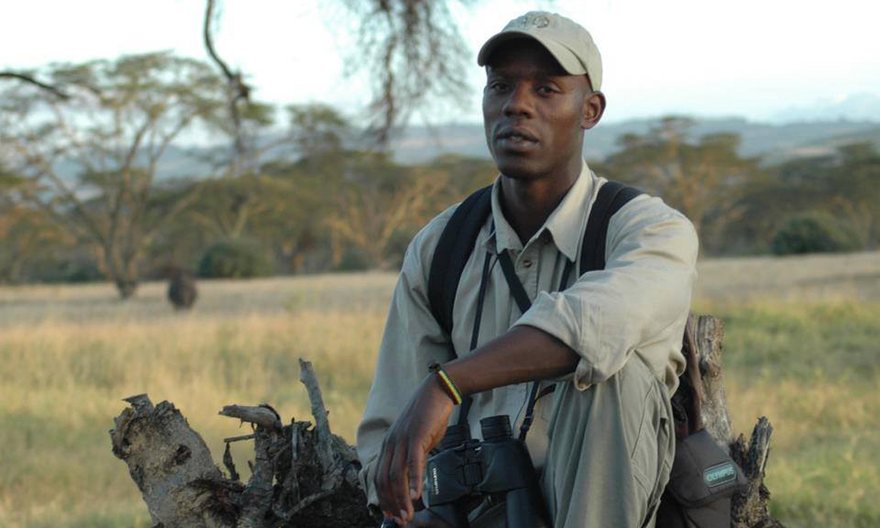
Timothy Leperes Laur live streams the migration of animals. Photograph: HerdTracker
Before social media we had to rely on word of mouth or phone calls to let people know what was happening with the animals we look after. Now, we have lots of options at our fingertips.
Twice a year we [a team of rangers and safari guides] live stream the migration of wildebeest across Kenya’s Maasai Mara using Twitter, Periscope and Facebook.
We record the footage on our mobile phones, which is then beamed to the world by our colleagues from their office in South Africa.
We can only do this a couple of times a year, when the herds cross the river so we can estimate where they are going to be.
The most challenging thing is the distance we need to cover to keep up with the animals, but at least we can update people in real time, rather than waiting until after the event.
Unless, of course, the reception fails us. It can be hard to find good signal deep in the African wilderness.
Timothy Leperes Laur, 35, the Maasai Mara, Kenya

